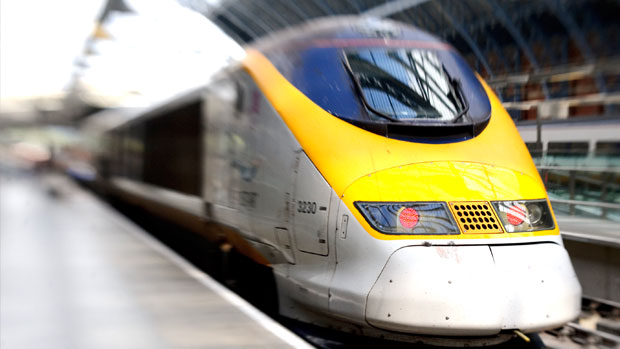UK exit checks: why it now takes longer to leave the country
From today the government is reintroducing exit checks for ferry and rail passengers leaving the UK

A free daily email with the biggest news stories of the day – and the best features from TheWeek.com
You are now subscribed
Your newsletter sign-up was successful
New exit checks for people leaving the UK come into force today, with critics of the system claiming that it will lead to delays at ferry ports and rail terminals.
So what is changing and why are so many people worried about it?
What's going to change?
The Week
Escape your echo chamber. Get the facts behind the news, plus analysis from multiple perspectives.

Sign up for The Week's Free Newsletters
From our morning news briefing to a weekly Good News Newsletter, get the best of The Week delivered directly to your inbox.
From our morning news briefing to a weekly Good News Newsletter, get the best of The Week delivered directly to your inbox.
New Home Office rules mean that every tourist leaving the UK will have their passports checked at ferry points for the first time in 20 years. Airlines have already been required to check their passengers's passports, so people travelling through airports will not notice any difference.
Why?
The government says the exit checks will become a vital weapon in the fight against illegal immigration. A spokeswoman for the Home Office said the new system "will improve our ability to identify which people have overstayed, take targeted action against those abusing the law and identify and tighten the immigration routes and visas that are most vulnerable to abuse."
What problems may result?
A free daily email with the biggest news stories of the day – and the best features from TheWeek.com
Critics of the scheme are predicting long queues, danger to families, and economic damage.
The new system will mean check-in staff take an extra 30 seconds to process each passenger. It will double the amount of time it takes to process a car with a family of four. This could cause queues of up to five miles to build up out of ferry ports, blocking major roads, according to critics of the system.
One source at a ferry company has said that this will lead to "families frying in cars on a summer's day". Also, with vehicles having to join the queues of lorries on the A20 and M20, there is huge concern about the safety of families in their cars.
The disruption will be particularly acute at Dover, which handles 60 per cent of Britain's ferry traffic with the Continent - around 50 sailings a day. On the busiest day last summer more than 11,500 cars passed through Dover bound for France.
There could also be repercussions for the economic recovery, due to the financial damage promoted by the blockage of the UK's main trade route with Europe.
Is anything being done to avoid chaos?
The Home Office said it is "does not wish to see queues forming". It insists it has been "working with ports and carriers to ensure provision of effective exit data while minimising disruption for legitimate passengers as they pass through our ports and limiting the impact on businesses such as port and ferry companies".
However, although ferry companies say they want to "devise an arrangement… for relieving excessive queues", any measure they propose to relieve the problem will have to be approved by a Home Office official before it can be introduced.
How are the exit checks working so far?
The new measures have been introduced before the summer peak in passenger numbers, and so far it seems to be working smoothly. "Initial reports suggested the new system had started without any major problems, with no delays at the Eurotunnel terminal in Folkestone or P&O Ferries' terminal in Dover," the BBC reports.
Today only a quarter of passport details are being verified to check that they are correct, although all will be scanned. By mid-June, all passports will be verified.